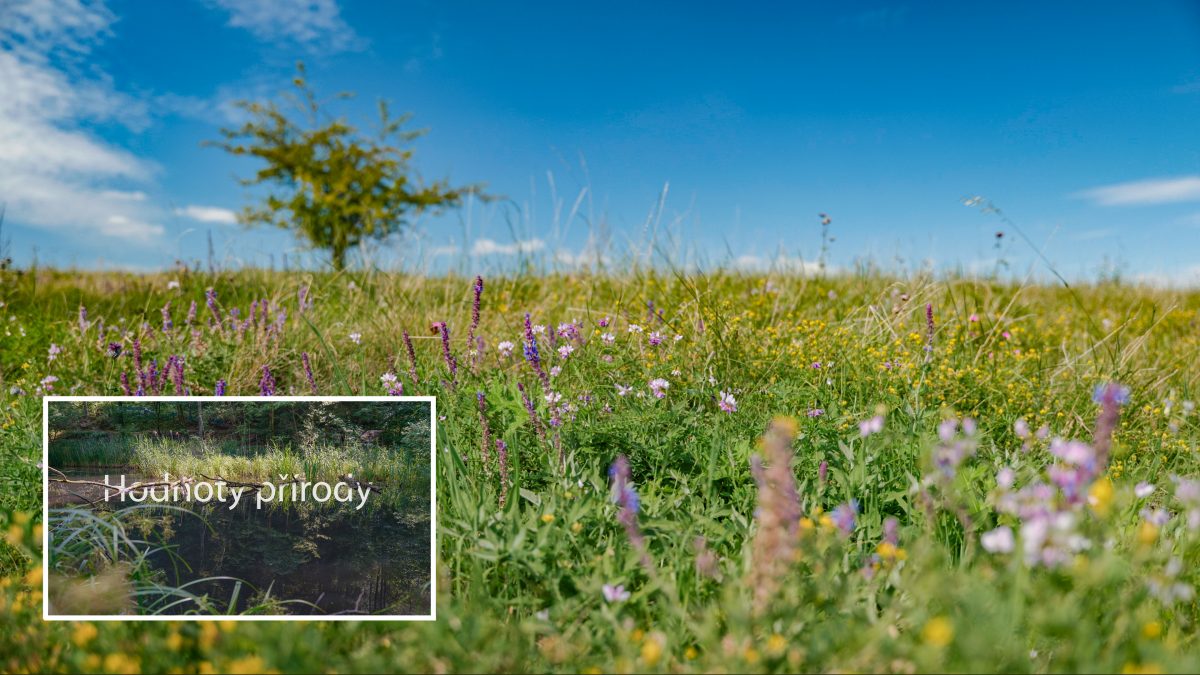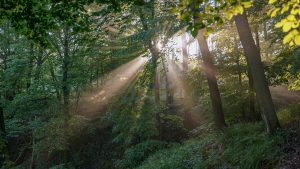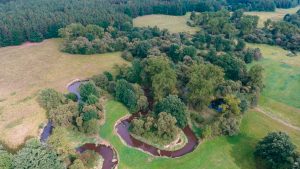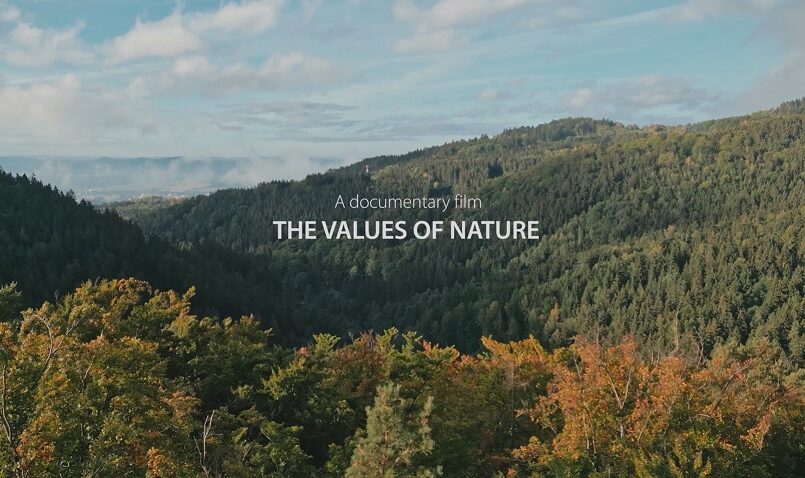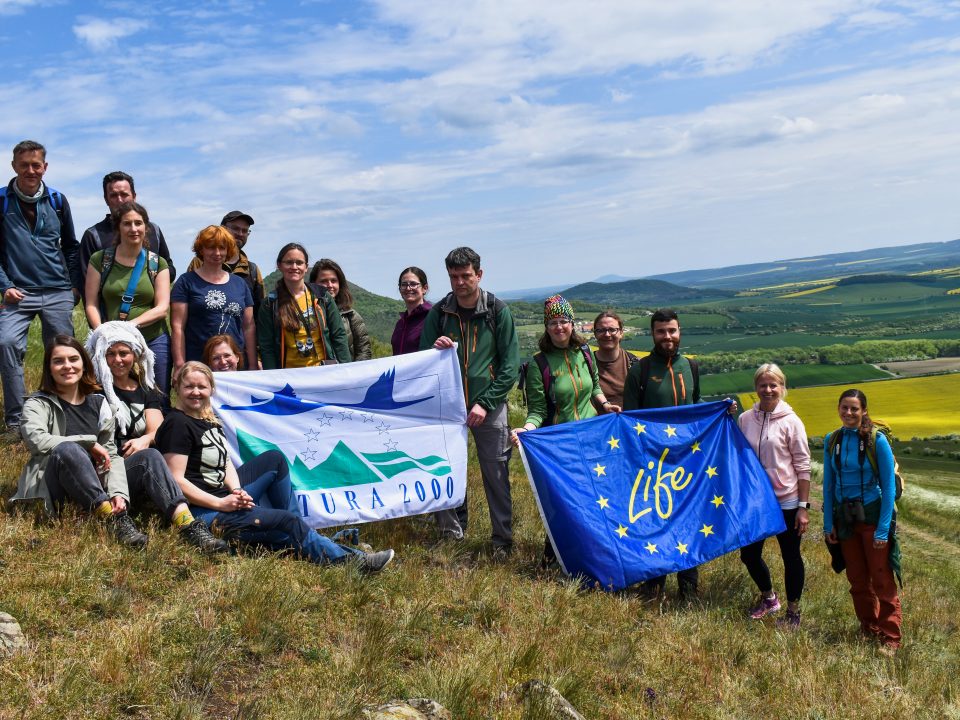The new documentary Values of Nature introduces the concept of ecosystem services evaluation
On Thursday 27 April, the premiere of the film Values of Nature took place in the Přítomnost cinema. The film is the first comprehensive documentary that uses the Czech landscape as an example to explain in a visually pleasing way what benefits or ecosystem services nature provides to us humans and why it is important to know about them in nature conservation and when making decisions about the use of the landscape. It shows how such benefits are measured through concrete examples – from water or carbon retention in the soil, to sustainable wood and food production, to tourism and the impact of nature on its visitors.
The film was made under the direction of Michal Gálik (director of Green Desert, On the Wings of Wild Horses) in cooperation with the One Nature Project, whose main coordinating partner is the Ministry of the Environment. CzechGlobe is the expert guarantor of the film, together with other Project partners – alongside the Ministry, Charles University Environment Center (CUEC), Nature Conservation Agency (NCA) and the Biological Centre of the Czech Academy of Sciences. The One Nature Project is co-financed by the European LIFE Programme and its main objective is to improve the conditions of protected species and natural habitats in the Natura 2000 protected areas within the Czech Republic, to prevent the loss of biodiversity and to evaluate the benefits of nature for society. Evaluating benefits or ecosystem services allows us to better manage and use our landscapes in a way that benefits people and biodiversity.
The benefits of nature accompany us at every turn, even though they are often taken for granted. In recent years, for example, we have seen that some of the less visible services were previously forgotten at the expense of others, and are now weakened and failing to fulfil their potential. This is the case, for example, of services related to water retention in the landscape. It is therefore necessary to be aware of the values of nature, to raise awareness of them and to try to maintain their quality so that nature can continue to provide these services in the future.
The aim of the film is therefore to promote awareness of the various specific values of nature in our society, and to help make the knowledge that science has about them visible for use in practice. The film is designed as an introductory encounter with the topic of nature’s values and ecosystem services for both the professional and general public.
In addition to the filmmakers and actors, the premiere of the Values of Nature was also attended by representatives of the Ministry of Environment and experts. The opening speech was given by the Deputy Minister of Environment Ms. Eva Volfová. “Personally, I like the concept of ecosystem services very much, because when it comes to explaining to someone why we need to protect nature, I consider this complex ecosystem approach, the perspective in explaining what values and functions nature provides us, to be crucial. That is why I am glad that the One Nature Project could contribute to the production of a film that can be referred to when trying to better understand ecosystem services. I feel that we have come a long way in understanding the complexity of nature and what we may lose when we destroy it, and we understand ecosystem services. Today we know that even functions important for our survival are under threat, such as water retention in the landscape or biodiversity. However, this film can also lead us to think about deeper connections, about what we as humans cannot see. The One Nature Project is also very comprehensive and tries to grasp and evaluate ecosystem services in Natura 2000 sites, helping to ensure management in these areas, and on behalf of the MoE, we can say that we are addressing this topic thoroughly.”
The speakers then answered questions from the audience in a panel discussion. The participants were interested, for example, in the comprehensive approach of the City of Prague to the care of nature. “A municipality that often owns agricultural, forestry and many other types of land is responsible for considering ecosystem services within land management. Our primary goal is not the highest economic gain from management. As seen, our meadows are not primarily for hay production. People appear to be able to identify with this approach. Farmers working on our land are being approached by private landowners who like the way they farm and would like to see a similar approach on their land.” The audience was very impressed by the approach in the Klokočná forest, which, while maintaining the productive function of the forest, also emphasises the other benefits of this ecosystem to nature and people. “At Klokočná we try not to fight nature, but to meet it halfway. Over the years, we have not remained indebted to the forest,” said Vladislav Ferkl, a forest manager for more than thirty years, pointing out that nature-friendly management can be implemented in an economically reasonable way.
-
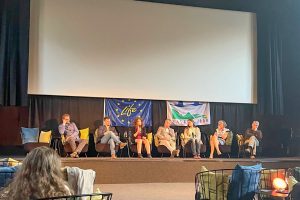
- Panel discussions with the filmmakers and main actors. From left: Milič Solský (Municipality of the Capital City of Prague), Michal Gálik (director), Kateřina Mácová (CUEC), David Pithart (Coalition for Rivers), Johana Drlíková (CzechGlobe), Eva Volfová (MoE), Vladislav Ferkl (Klokočná)
-
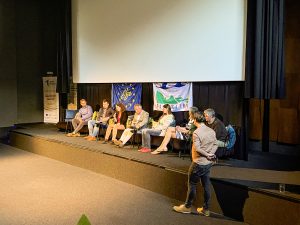
- Panel discussions with the filmmakers and main actors. From left: Milič Solský (Municipality of the Capital City of Prague), Michal Gálik (director), Kateřina Mácová (CUEC), David Pithart (Coalition for Rivers), Johana Drlíková (CzechGlobe), Eva Volfová (MoE), Vladislav Ferkl (Klokočná)
Kateřina Mácová from CUEC illustrated in a discussion with the audience that the film is really just a basic signpost to the topic of nature values and ecosystem services and their measurement. Many very complex issues are addressed in ecosystem services research, such as the time scale over which benefits are generated. “Benefits from agricultural landscape management are generated every year and are therefore very visible, graspable, imaginable to us. In forestry, the time scale is longer – the rotation period before timber is produced for processing is sixty to eighty years, so we see the time scale as much longer term. We have already heard that from the audience here in the discussion, and we can imagine that as well. But I will add to that another time layer that we are addressing – and that is the very long-term perspective that we are examining in the evaluation of adaptation measures with regard to climate regulation, for example, in the implementation of flood control measures. The time horizon when the benefits for such measures are generated can be hundreds of years, so it concerns not only us but also future generations. This is to illustrate how complex the topic of ecosystem services is even for us scientists, and how many different disciplines are needed to have a say in their assessment. We have mentioned, for example, sociology, economics, psychology, a wide range of research on natural processes and relationships, including ecology, etc. – but surprisingly, for this purpose we also need to include, for example, insights from ethics if we want to comment on whether we should prioritise benefits only for the present generation or also for generations yet to come.”
The film Values of Nature is available to the public on the YouTube channel One Nature (with ENG subtitles) and it can be further used e.g. for teaching and education.




